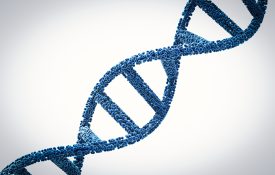-

Exploring the Genetics of “I’ll Do It Tomorrow”
Procrastination and impulsivity are genetically linked, suggesting that the two traits stem from similar evolutionary origins related to our ability to pursue and juggle goals.
-
New Research From Clinical Psychological Science
Read about the latest research published in Clinical Psychological Science: Influences of Ovarian Hormones on Dysregulated Eating: A Comparison of Associations in Women With Versus Women Without Binge Episodes Kelly L. Klump, Sarah E. Racine, Britny Hildebrandt, S. Alexandra Burt, Michael Neale, Cheryl L. Sisk, Steven Boker, and Pamela K. Keel Studies have shown an association between changes in ovarian hormones and amounts of emotional eating women engage in across their menstrual cycles; however, researchers are still unsure whether this relationship differs for women with clinically diagnosed binge-eating episodes.
-

The Taxman Cometh: Science Explains Why Some Pay and Others Evade
Despite the threat of penalties, some people decide that the government won’t be getting their tax money. Psychological science shows what motivates some to pay and others not.
-

Your Personality and Career Sculpt Each Other
Some people’s personality traits just make them cut out for a certain type of job. But can your career affect your personality?
-
ABSAME: A Forum for Behavioral Sciences and Health Professions Education
The 44th Anniversary Meeting of ABSAME will be held October 16–18, 2014, at the Hyatt Regency in Newport Beach, California. This year’s theme, “The Behavioral Science of Interprofessional Education: Confronting Issues of Hierarchy and Power” lends itself to exploration of many of the issues surrounding interprofessional education that must be recognized and addressed so our students can become fully participating members of highly functioning teams. Issues of teamwork, power imbalance, power structures, conflict resolution, communication strategies, roles, personal/professional identity, and how the arts and humanities can aid in creating more humane health care providers will be addressed.
-
Researchers Make Strides in Early Diagnosis for Autism
It’s World Autism Awareness Day, an annual celebration in which autism organizations across the globe engage in fundraising and educational events to raise public understanding of the developmental disorder. And it falls in the wake of last week’s U.S. government report showing a 30 percent rise in autism rates. According to the Centers for Disease Control and Prevention, the condition now affects an estimated one of every 68 8-year-old children, up from one in 88 just two years ago. Fortunately, psychological scientists are helping researchers from other disciplines make progress in early diagnosis and intervention for children with autism.

